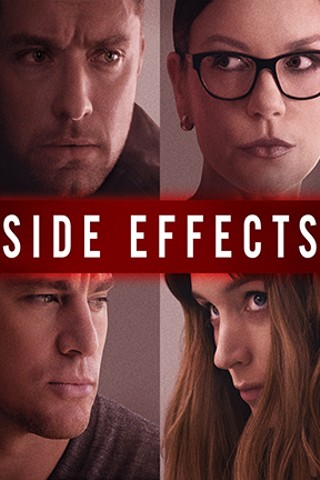This is, apparently, the last punch on director Steven Soderbergh's dance card. Since announcing his retirement from feature films about three years ago, Soderbergh has continued to work furiously: He's pumped out six movies, each one different from the next. Technically, he has one more feature film to go—the Liberace biopic Behind the Candelabra—but studios shied away from it so it's airing on HBO later this year.
If it's true that Soderbergh is walking away from features at age 50 (leaving the door open for documentaries, one assumes), then it's worth reflecting on what we'll be missing. Just since his career rebirth with Out of Sight in 1998, he was nominated twice for Best Director in 2001 (Traffic, for which he won the Oscar, and Erin Brockovich), has churned through three Ocean's movies, found more commercial success with Magic Mike and Contagion, and thrown in several indie flicks and documentaries for good measure. That's not a complete list (he's actually directed 20 movies in the past 13 years), but it shows how diverse and efficient Soderbergh can be; very few can match him at either, much less both.
While not a perfect swan song, Side Effects is a strong outing for Soderbergh. He comfortably wears an Alfred Hitchcock suit this time around, as opposed to the Coen brothers clothes he threw on for The Informant! He substitutes Jude Law for Cary Grant's ordinary man in extraordinary circumstances and Rooney Mara as every troublesome leading lady. Before the film doinks the landing with a silly, unsatisfying climax, Soderbergh ratchets up the intensity with a lot of twists, overly confined spaces shot at atypical angles, and an unsettling score by Thomas Newman.
When her husband (Channing Tatum) is released from prison after a four-year stint for insider trading, Emily (Mara) turns to pills to cope with her anxiety. They don't work, and following a failed suicide attempt (car + wall), she's put under the care of psychiatrist Jonathan Banks (Law). Banks prescribes Emily a new drug that has some serious unintended consequences (sleepwalking + murder).
Banks finds himself in the eye of the storm: Just what did he give Emily, what was her history with prescription medication, how much research did he do on the new drug, and—these things happen—was he romantically involved with his patient? His partners at the office turn on him quickly and eventually so does his wife, troubled not only by these allegations but the resurfacing of a similar issue earlier in his career.
Looking for any answer at all, Banks turns to Emily's previous psychiatrist (Catherine Zeta-Jones). She reveals that Emily had been to see her since her husband's arrest and that she had tried several treatment options with little success. But that's just the tip of the iceberg.
Rooney Mara is coming off a breakthrough performance in the remake of The Girl with the Dragon Tattoo, and while this role isn't as showy, she still finds a way to leave her stamp on Emily. Without revealing too much of what's at play here, questions start popping up about the legitimacy of Emily's claim and even her illness. Mara plays it all straight-faced; if she showed her hand the whole illusion would crumble. Instead, you're left in the dark about what exactly has happened for a pretty generous amount of time.
Jude Law has an easy air about him, as if the world has never posed him any real problems. And that's sort of what we see with Jonathan Banks: He excels at a very serious job, never seems to stress about things and has a beautiful family. If you passed Jude Law on the street, that's the storybook you would imagine he lived in. It makes his resolve when the world turns against him so much more involving.
The script was written by Scott Z. Burns, who adapted The Informant! and wrote Contagion as well. Side Effects is not as much of a societal critique as a movie about the pharmacological culture in the U.S. could be. There's a vague undercurrent about how the drug companies push doctors into trials, how doctors push patients into unsafe decisions and how patients push doctors into false diagnoses. But the action is much more isolated overall. Missed opportunity? Maybe.
The film gets particularly Hitchcockian when Soderbergh invites us closer to Banks' panic but keeps us at arm's length from Emily's real medical diagnosis, even while her own life hangs in the balance at a tabloid-magnetizing trial. The subplot with Zeta-Jones turns out to be a deflating distraction, one that ultimately does more harm for the movie than good. Granted, it gives some motivation to Emily's character, but that turns out to be both unnecessary and a bit of a copout.
But for about 90 minutes, Soderbergh expertly pulls the strings one last time.











